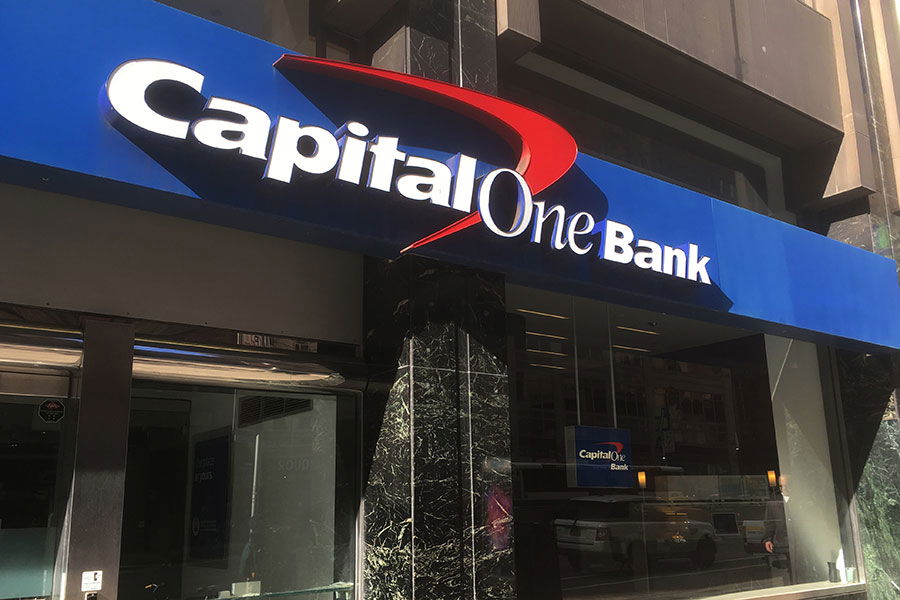Falling behind on your Capital One credit card can lead to more than late fees—it can lead to a collection account on your credit report. Once that happens, your credit score takes a hit, and it can stay there for years unless you take action.
Here’s how to handle Capital One collections and protect your credit.
Why Capital One Collections Show Up on Your Credit Report
If you’ve missed several payments on a Capital One credit card, the account may have been charged off and reported to the credit bureaus as a collection. In some cases, Capital One still owns the debt. In others, they’ve sold it to a third-party collection agency.
Either way, the result is the same: your credit score drops, and the account stays on your report for up to seven years unless you get it removed.
How Capital One Collections Affect Your Credit
Payment history makes up 35% of your FICO score, so a single collection account can do major damage. It tells lenders you’ve failed to repay a debt, making it harder to qualify for credit cards, loans, or even rental housing.
That’s why dealing with collections quickly and strategically is key.
How to Remove Capital One Collections From Your Credit Report
There are several ways to get Capital One collections off your credit report—whether you still owe the debt or have already paid it.
1. Check All Three Credit Reports
Start by getting copies of your credit reports from Experian, Equifax, and TransUnion. Use a site like AnnualCreditReport.com to access them for free. Look for:
- The name of the creditor
- The date the account was opened and closed
- Account status: charged off, in collections, or paid
This helps you determine your next move.
2. Find Out Who Owns the Debt
Your report will tell you whether Capital One still owns the account or if they’ve sold it to a collection agency. If it’s listed as a charge-off, that likely means it’s been sold. If it’s shown as a collection or unpaid, Capital One may still have it.
This matters because your strategy will differ depending on who’s handling the debt.
3. Request Debt Validation
If the debt has been sold to a third-party collector, send them a debt validation letter. Under the Fair Debt Collection Practices Act (FDCPA), they must prove:
- The debt is yours
- The amount is correct
- They have legal authority to collect it
They have 30 days to respond. If they can’t validate the debt, they must remove it from your credit report.
4. Negotiate With Capital One
If Capital One still owns the debt, and you’ve already paid it, you can request a goodwill adjustment—essentially asking them to remove the negative mark as a courtesy.
If you haven’t paid it yet, consider negotiating a settlement or payment plan.
5. Try a Pay-for-Delete Agreement
If the account is unpaid, you can offer to pay in full in exchange for Capital One—or the collector—removing it from your credit report. This is called a pay-for-delete.
Make sure to:
- Get the agreement in writing
- Have the full amount ready before negotiating
This isn’t guaranteed, but it can work—especially with older debts.
6. Dispute the Collection With the Credit Bureaus
The Fair Credit Reporting Act (FCRA) gives you the right to dispute any inaccurate or questionable item on your credit report. The credit bureau must verify the account within 30 days, or remove it.
Disputes can be submitted online through each bureau’s website.
7. Work With a Credit Repair Company
If you’ve tried everything and still can’t get the account removed, a credit repair company can help. These professionals know how to challenge negative accounts and improve your credit more efficiently.
Ready to Clean Up Your Credit Report?
Learn how credit repair professionals can assist you in disputing inaccuracies on your credit report.

Capital One Contact Information
If you need to reach out to Capital One directly, here’s where to start:
Corporate Address:
Capital One Financial Corp
1680 Capital One Drive
McLean, VA 22102-3491
Mailing Address:
Capital One
Attn: General Correspondence
P.O. Box 30285
Salt Lake City, UT 84130-0287
Phone Number:
(877) 383-4802

Can Capital One Sue or Garnish Your Wages?
Yes, Capital One has the legal right to sue over unpaid debts. If they win in court, they can get a judgment that allows them to:
- Garnish your wages
- Levy your bank account
- Place a lien on your property
The rules vary by state, but lawsuits are usually a last resort. Capital One often prefers to work out a payment plan first.
Know Your Rights With Capital One Collections
Under federal law, you have strong protections when dealing with debt collectors—even if the original creditor is a major company like Capital One.
Your rights under the FDCPA include:
- You can request written proof of the debt
- They must report accurate and complete information
- They cannot threaten, harass, or misrepresent who they are
- They must clearly state they are attempting to collect a debt
- They cannot threaten arrest or legal action they don’t intend to take
If your rights are violated, you can report them to the Consumer Financial Protection Bureau (CFPB).
Get Capital One Collections Removed Today
If Capital One collections are weighing down your credit, it may be time to call in the pros. Credit Saint can help you dispute and remove negative accounts, including credit card collections from major lenders.
With over 15 years of experience—and a 90-day money-back guarantee if they don’t deliver—they’ve helped thousands of people take back control of their credit.
Call (855) 281-1510 or visit their website to get started today.

Brooke Banks is a personal finance writer specializing in credit, debt, and smart money management. She helps readers understand their rights, build better credit, and make confident financial decisions with clear, practical advice.
